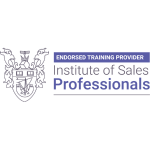Unlocking Sales Leadership: 5 Practical Techniques for Team Excellence
Sales leadership plays a crucial role in inspiring and guiding your team towards success. If you’re seeking ways to enhance your sales leadership skills, explore these five practical techniques that can make a significant impact:
Technique 1: Empower with Revenue Enablement
As a leader, you have the unique opportunity to empower your team through revenue enablement. Being a role model who actively engages in revenue-aligned strategies sets the standard for dedication and commitment, fostering a culture of success.
Actionable Steps:
Promote Alignment: Highlight the importance of a seamless alignment between sales, marketing, and customer success teams to showcase the collective effort needed to achieve revenue growth.
Leverage Data Insights: Embrace data-driven decision-making to show the significance of informed strategies in achieving revenue targets.
Continuous Learning: Emphasize the importance of ongoing learning and development to drive revenue performance.


Technique 2: Setting Clear Goals

Clear and attainable goals are essential for your team’s success. The SMART (Specific, Measurable, Achievable, Relevant, Time-bound) framework can help you define goals that provide direction and motivation.
This does sound simple however you will be surprised how many organisations are either not doing it or doing it right.
Let’s talk about the idea of setting realistic sales and revenue goals, as an example. If a company struggles to reach its sales targets one year and then suddenly doubles them the next, it can make the sales team feel uneasy and demotivated. It’s important to have open and clear communication about how and why these goals are set to keep everyone on the same page and motivated. This way, the team can work together effectively towards their objectives.
Here are a few examples of clear goals:
Aim for a 10% increase in monthly sales revenue by quarter-end.
Improve lead conversion rates from 25% to 30% in three months.
Set a target to onboard 50 new clients within the next six months.
Sales experts like Mark Hunter, known as “The Sales Hunter,” emphasize the significance of goal-setting in sales strategies.
Technique 3: Providing Regular Sales Coaching and Feedbacks
Constructive feedback is a valuable tool for improvement. It’s a two-way street – encourage open communication for feedback from your team as well. This approach creates a culture of continuous improvement.
View feedback as the compass guiding your way. Implementing an open door policy and hosting regular monthly meetings is like establishing regular touchpoints. In these gatherings, your team can openly share thoughts, ideas, and concerns. This approach fosters a culture of openness and teamwork, making feedback a natural and valuable part of our ongoing growth and improvement process.
Effective Feedback Practices:
Offer feedback after successful client pitches.
Encourage feedback during one-on-one meetings.
When a team member faces challenges, provide guidance and mentorship to assist in their improvement.
Giving feedback via AI Coaching tools to internal call recording or pitch practices
Get insights on the importance of feedback in sales leadership from experienced sales leadership consultant and author, Kevin Davis.

Technique 4: Fostering a Collaborative Sales Culture

Sales thrives on teamwork. Encouraging a collaborative culture within your team promotes idea sharing and mutual support, leading to better results.
Ways to Foster Collaboration:
- Organize regular team brainstorming sessions to encourage idea sharing.
- Create an environment where team members help each other.
- Establish recognition and reward systems that highlight individual achievements and emphasize how these contributions benefit the entire team.
- Encourage cross-functional collaboration and integration.
Explore the impact of collaboration on sales teams with insights from sales leadership thought leaders like Colleen Stanley.
Technique 5: Embracing Technology
Technology especially AI can be a game-changer in sales. Leveraging the right sales tools enables data-driven decision-making, improves efficiency, and simplifies processes. Embrace technology as an ally in your sales leadership journey.
Immediate Technology Steps:
Introduce sales analytics tools.
Incorporate sales enablement software.
Incorporate Sales AI and engagement tools into your workflow.
Having a CRM is a bare-minimum basic technology, in case you don’t have one already.
Discover how technology can transform your sales leadership journey through the insights of sales leadership expert, Jamie Shanks.

In Summary: Sales leadership is an ongoing process, and mastering these techniques can significantly impact your team’s performance. Through revenue enablement, setting clear goals, providing regular feedback, fostering a collaborative culture, and embracing technology, you can enhance your effectiveness as a sales leader.
But I’m not the only one with insights here – I’d love to hear from you. What techniques have you found effective in boosting your team’s performance as a sales leader? Share your thoughts in the comments section below and join the conversation. Let’s learn from each other and keep the sales momentum going!
Awards and Recognitions

Follow Us on LinkedIn
All Rights Reserved.

















